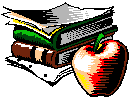 Rethinking
The Academy:
Rethinking
The Academy: Rethinking
The Academy:
Rethinking
The Academy:The question here is quite simple - by what means is the quality "better" determined, and by whom? It is never enough to have technology installed and used for the sake of its own self.
As Gail Hawisher has pointed out,
[m]icrocomputers present a special challenge for English teachers and teacher educators. As teachers, we must decide whether we should develop the necessary skills to teach with computers, whether the technology is useful for working with students, and, if it is, what strategies prove effective. Those of us who are teacher educators must consider these issues in addition to determining productive methods for introducing computers to teachers. Further, in collaboration with teachers, teacher educators need to develop strategies that build upon good process-centered curricula - and to try to construct models for using computers that improve current pedagogy for composition instruction. (71-72)
Clearly, we will need to answer administrators' questions: why do we need computers? How do they increase scholarship? In what ways do they make our students' better writers? At bottom, why should we allocate limited resources to your request and not, say, to the library's request for more books (noting, of course, that libraries have been in the forefront of the use of electronic materials in scholarship).
This is not a new question. For instance, in 1990, the Introduction to Holdstein's and Selfe's Computers and Writing: Theory, Research, Practice noted
[Computers and Writing] . . . differs from [other works on the subject of computers and writing] because it takes a "second generation" view of issues surrounding computer use in departments of English and the humanities. The thinking represented by the volume grows out a healthy skepticism about computers that marks our more developed understanding of the technology - a position contrasting dramatically with our profession's initial flurry of blind enthusiasm. (1)
Last Modified: August 2, 1996
Copyright © 1996 by Keith Dorwick